Grassroots Champions: Barangay Health Workers Lead the Way to Reduce Adolescent Pregnancy in Lapu-Lapu
Lapu-Lapu City in Central Visayas faced a rising adolescent birth rate (ABR), increasing from 14 births per 1,000 adolescents in 2020 to 23 in 2023. At the same time, modern contraceptive prevalence rate (mCPR) dropped from 31% to 21%. Local health officials saw that, while women continued to seek services, many still relied on short-acting family planning methods. Uptake of long-acting options was growing but needed stronger community support.
To respond to the alarming numbers, the city partnered with The Challenge Initiative (TCI), a global program implemented in the Philippines by the Zuellig Family Foundation that helps local governments scale proven family planning and adolescent and youth sexual and reproductive health (AYSRH) solutions.
Related articles:
- Nine Cities Recognized as Global Self-Reliant Cities in Reproductive Health
- Lapu-Lapu City’s Path to Strengthening Family Planning and Adolescent Health
The city formed the Lapu-Lapu City Leadership Team to unite health, education, youth, and social welfare sectors. Barangay nurses and midwives then began integrating meaningful conversations into routine services. They learned that many adolescents lacked parental guidance and reliable reproductive health information, while many adult women feared modern methods because of misconceptions. These issues showed that rising adolescent pregnancies and declining contraceptive use stemmed from the same need: trusted, judgment-free health information within the community.
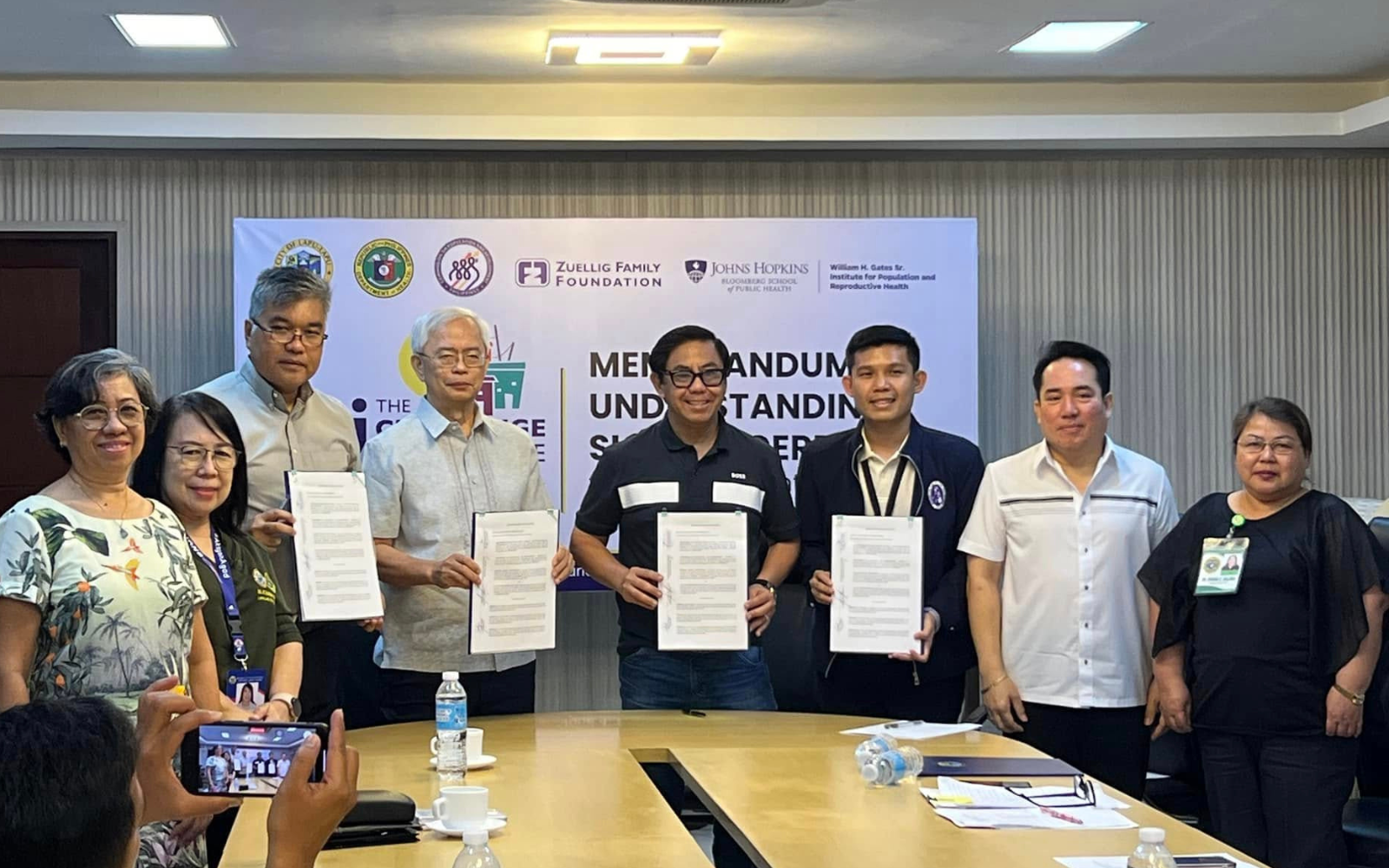
Lapu-Lapu City placed communities at the center of its strategy. Awareness efforts shifted the conversation from contraceptives alone to responsible parenthood.
Barangay Health Workers (BHWs)—trusted members of each neighborhood—played a central role. Through house-to-house visits, they profiled households, explained family planning options, and corrected myths using simple materials. BHW Coordinator Jovy Alonzo emphasized that all BHWs are trained in adolescent health and development and uphold confidentiality and nonjudgmental support. Their strong performance earned Lapu-Lapu’s BHWs the Performance-Based Incentive (PBI) Award for two consecutive years, making them PBI Champions in Central Visayas. As Nurse Grace Mary Chan-Carunggay shared, “This recognition is a testament to their exceptional service and dedication.”
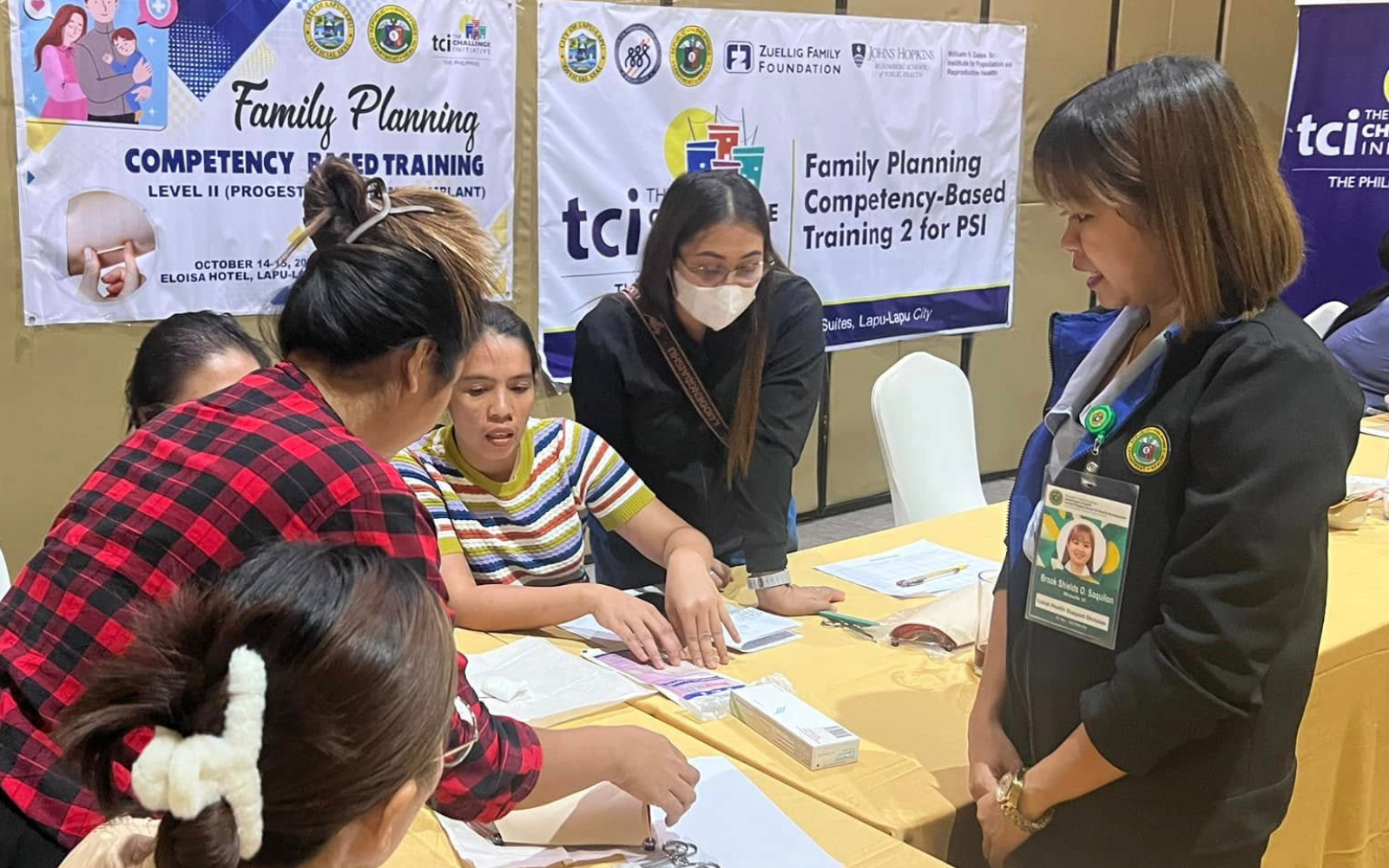
The city also strengthened its service delivery system by training more providers through Family Planning Competency-Based Training (FPCBT), especially in barangays with limited access. This allowed more health centers to offer long-acting reversible contraceptives (LARC), including the Progestin Subdermal Implant. City leaders supported these improvements by funding BHW incentives and training, conducting regular barangay visits, and ensuring data quality for planning. According to City Health Officer Dr. Agnes Cecilia Realiza, “Adolescent parents are now coming to our health centers. They no longer feel stigmatized, and they seek prenatal care, ensuring the safety of both mother and child during delivery.”
In 2024, the city recorded only one additional adolescent pregnancy case, showing early signs of progress. The drop in mCPR was largely due to data cleaning, which corrected the number of women counted in the program. Lapu-Lapu is also adjusting to the shift in national indicators—from mCPR to “demand satisfied”, or the share of women with a need for family planning who use modern methods. The City Health Office continues to improve staff capacity for accurate data use and coaching.
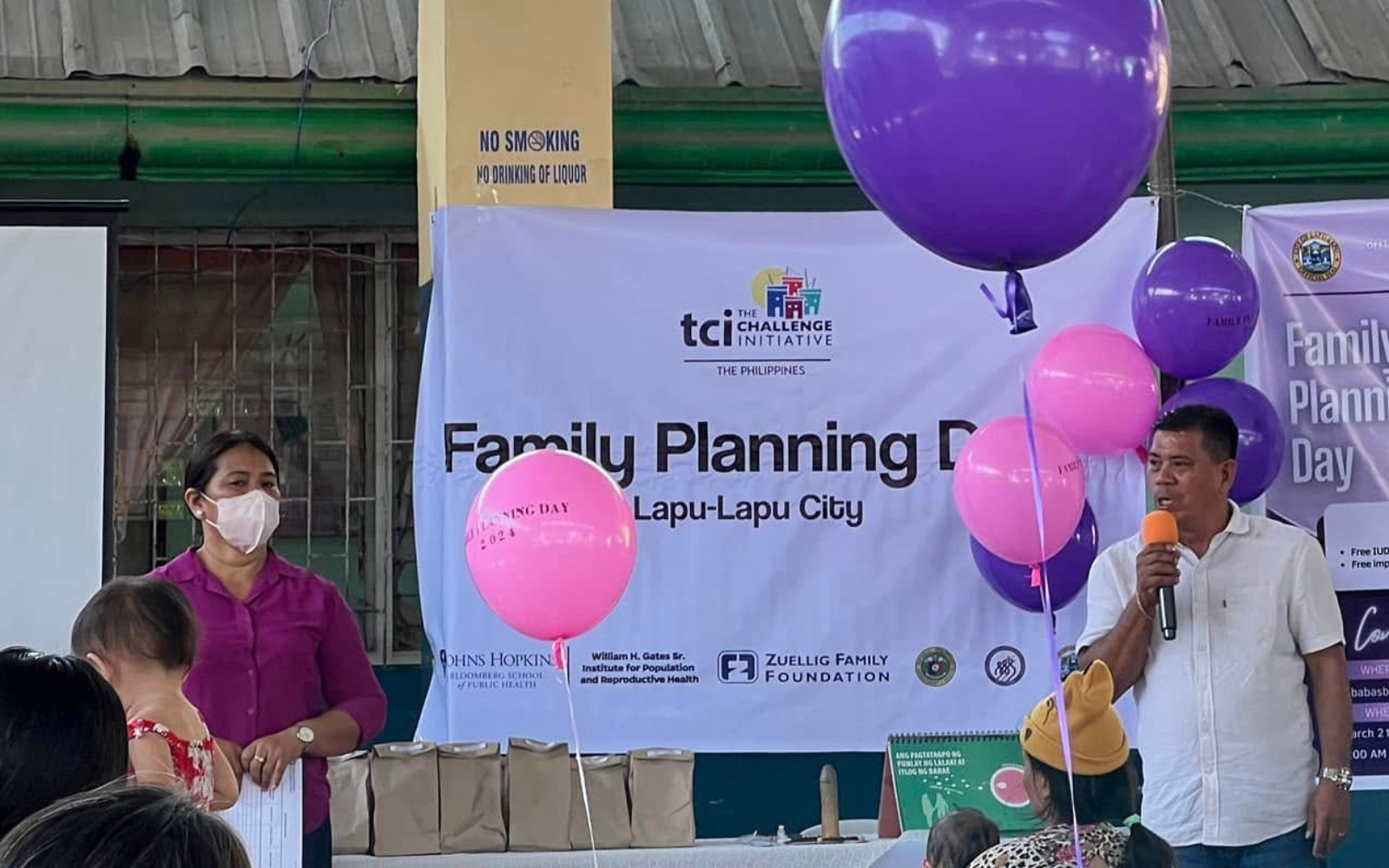
Lapu-Lapu’s experience shows the power of community-centered, data-driven leadership. By investing in AYSRH and allocating dedicated budgets, the city has strengthened the work of BHWs and sustained community engagement. With a 22% increase in AYSRH budget commitments, based on TCI-Philippines monitoring, Lapu-Lapu demonstrates that empowering frontline workers creates lasting impact—helping young people make informed choices for their health and future.
Building Stronger Nutrition Governance Across Basilan LGUs
The Zuellig Family Foundation (ZFF) conducted field monitoring and assessment visits in Lamitan City, Maluso, Ungkaya Pukan, Hadji Mohammad Ajul, and Al-Barka, five of the ten Local Government Units (LGUs) as part of the Municipal Nutrition Governance Program (MNGP) under ZFF’s Basilan Assistance Program (BAP). The visits aimed to check the LGUs’ practicum implementation, track accomplishments based on their plans, and identify areas where they need additional support to strengthen local nutrition governance.
LGU nutrition core teams shared their experiences, challenges, and learnings. Their reflections offered a clearer picture of their progress and the guidance they still need. The visit also allowed them to plan for the upcoming Operation Timbang, validate performance milestones, and make sure their strategies align with their nutrition goals.
Across all sites, local leaders are taking concrete actions to place nutrition at the center of development. LGUs strengthened their systems by issuing policies and ordinances that encourage multi-sectoral work and formalize support for community workers. Increased budget allocations now reinforce these policy gains and reflect a more stable commitment to reducing malnutrition.

At the barangay level, improvements continue to take shape. Many barangays formed Barangay Nutrition Committees and drafted Barangay Nutrition Action Plans to guide nutrition initiatives. Barangay Nutrition Workers—including former combatants now serving as community frontliners—received training and built confidence in their roles. They now reach more families and deliver essential services more consistently, which supports more timely management of moderate and severe acute malnutrition cases.
The following key developments across LGUs were observed:
- LGUs issued policies and ordinances that strengthen multi-sectoral nutrition work.
- LGUs now have dedicated and prioritized budgets covering more comprehensive nutrition programs and services.
- Barangays formed Barangay Nutrition Committees to organize community actions.
- Selected barangays developed Barangay Nutrition Action Plans to guide interventions.
- Barangay Nutrition Workers received training on Nutrition Assessment and Basic Management of Acute Malnutrition and now work more confidently and effectively.
- Communities observed more responsive management of acute malnutrition cases. In Lamitan City, the local government hired additional IT support to strengthen the implementation of the Health and Nutrition Information System (HNIS).
- Improved community access by ensuring regular deployment of medical personnel in strategic barangay posts beyond the barangay health stations.
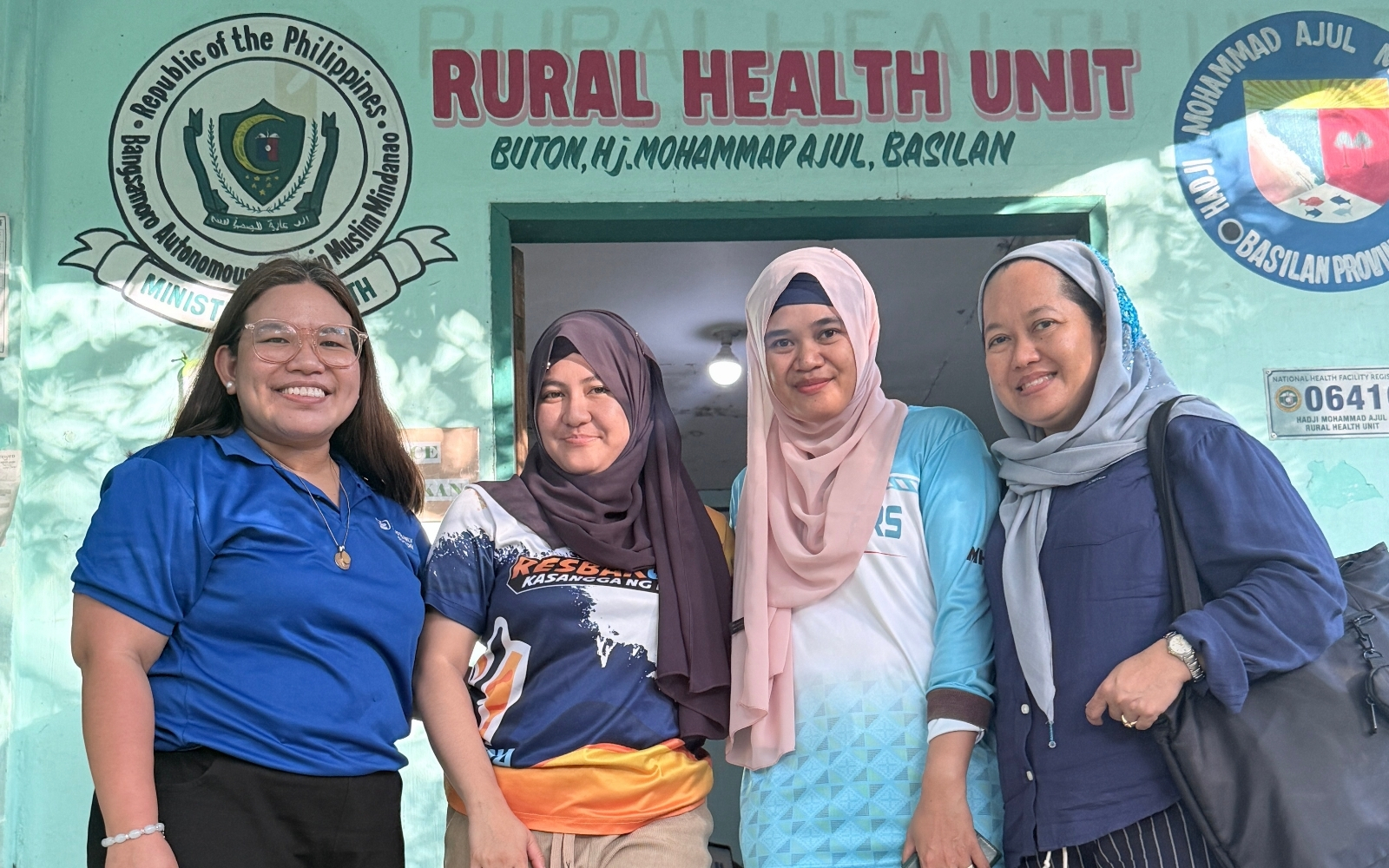
When LGUs invest in nutrition, they help build a healthier foundation for the next generation. The progress in Basilan shows that prioritizing nutrition is not only a health response, but a long-term investment in peace, stability, and human development.
Author: Rio Fe Del Valle, ZFF Nutrition Monitoring, Evaluation and Learning Expert
Slowly but Surely: Iriga City’s Inclusive Path to Family Planning among Indigenous Peoples
Iriga City is home to diverse communities, including many indigenous peoples (IPs). Like other areas, the city faces reproductive health challenges such as misconceptions about family planning (FP), cultural hesitations, and difficulty reaching families in geographically isolated and disadvantaged areas (GIDAs).
In July 2023, the city joined The Challenge Initiative (TCI), a global platform implemented in the Philippines through the Zuellig Family Foundation. With this partnership, the Iriga City Government and the City Health Office renewed their efforts to strengthen FP and adolescent and youth sexual and reproductive health (AYSRH), ensuring even the most underserved communities were included.
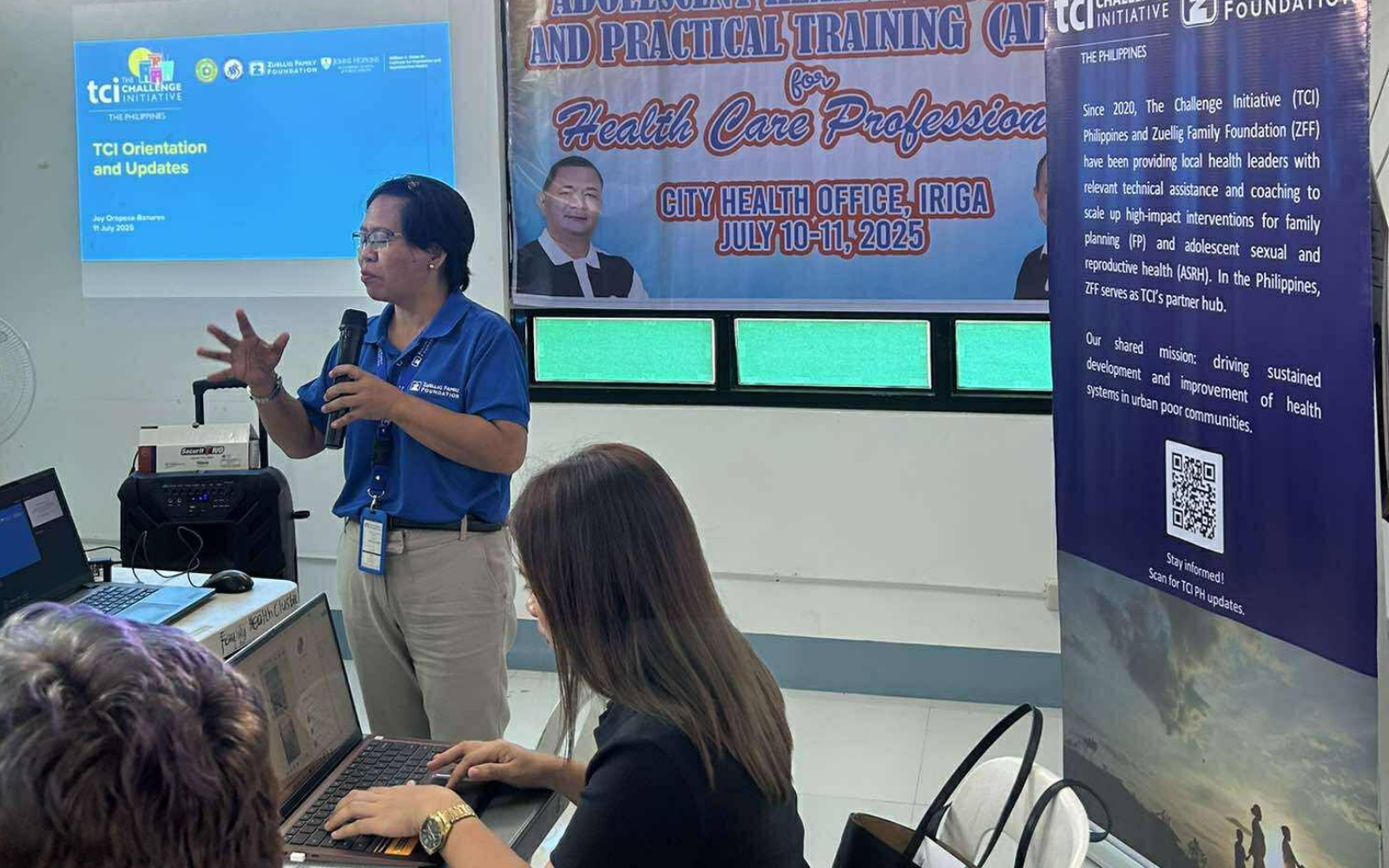
Related article:
Stories from the Frontlines
FP Coordinator Cyrene Oliva shared how TCI’s approaches helped Iriga improve data quality and slowly raise its modern contraceptive prevalence rate (mCPR). “Even if our mCPR dipped at first, we saw this as progress—because this time, our data was accurate. Now, with strengthened verification and continuous community engagement, our mCPR is climbing steadily again,” she said.
City Health Officer Dr. Ronald Pereña noted that mothers often hesitated to pursue family planning methods due to side effects, irregular supplies, and cultural expectations to seek their husband’s approval. Adolescents were also shy at first, but Oliva said that repeated discussions helped them open up. Several barangays later earned Certificates of Compliance as Level 1 Adolescent-Friendly Health Facilities—an important step under the AYSRH program.
Population Program Officer Mayet Amoroso Nacario observed that continuous awareness campaigns helped shift attitudes. “Before, many youth and even officials had little knowledge of adolescent health. Now, they are aware and more open. Teenage pregnancy still rises and falls, but families and schools are no longer ignoring it. There is now action and support,” she said.
Bridging Culture and Care
The city expanded FP access through Purok Kalusugan, a barangay-based initiative that integrates Department of Health (DOH) services at the purok level. Teams provided counseling, commodities, and even long-acting methods through house-to-house visits.
TCI supported Family Planning Competency-Based Training (FPCBT), enabling barangay workers to offer methods like implants and IUDs. This investment helped Iriga reach more IP communities in remote areas. Acceptance grew when IP barangay health workers—who were FP users themselves—became local champions.
Nacario shared that trust improved through repeated visits, conversations with leaders, and visible examples such as a chieftain choosing an implant. Dr. Pereña added, “Slowly but surely, you have to make them realize the big picture, that family planning will protect their health and wellbeing.”
Regular quality implementation checks, including monthly reviews and coaching, strengthened service delivery and ensured that adolescent-friendly facilities and FP programs remained responsive.
Stepping Up, Growing Up
Iriga also encouraged male involvement. More men began to ask for condoms and join FP discussions. Oliva recalled one husband who offered to have a vasectomy as a Valentine’s gift to his wife, saying it was his turn to share the responsibility.
The city also expanded AYSRH work in schools through the Department of Education (DepEd). Activities such as U4U Teen Trail sessions and age-appropriate film showings helped students learn about reproductive health and their rights. “Schools now invite us on their own,” Nacario said. “They even ask, ‘When will you come to our students?’ That’s proof that adolescent health is no longer taboo in Iriga—it is a collective priority.”
Sustaining Progress Together
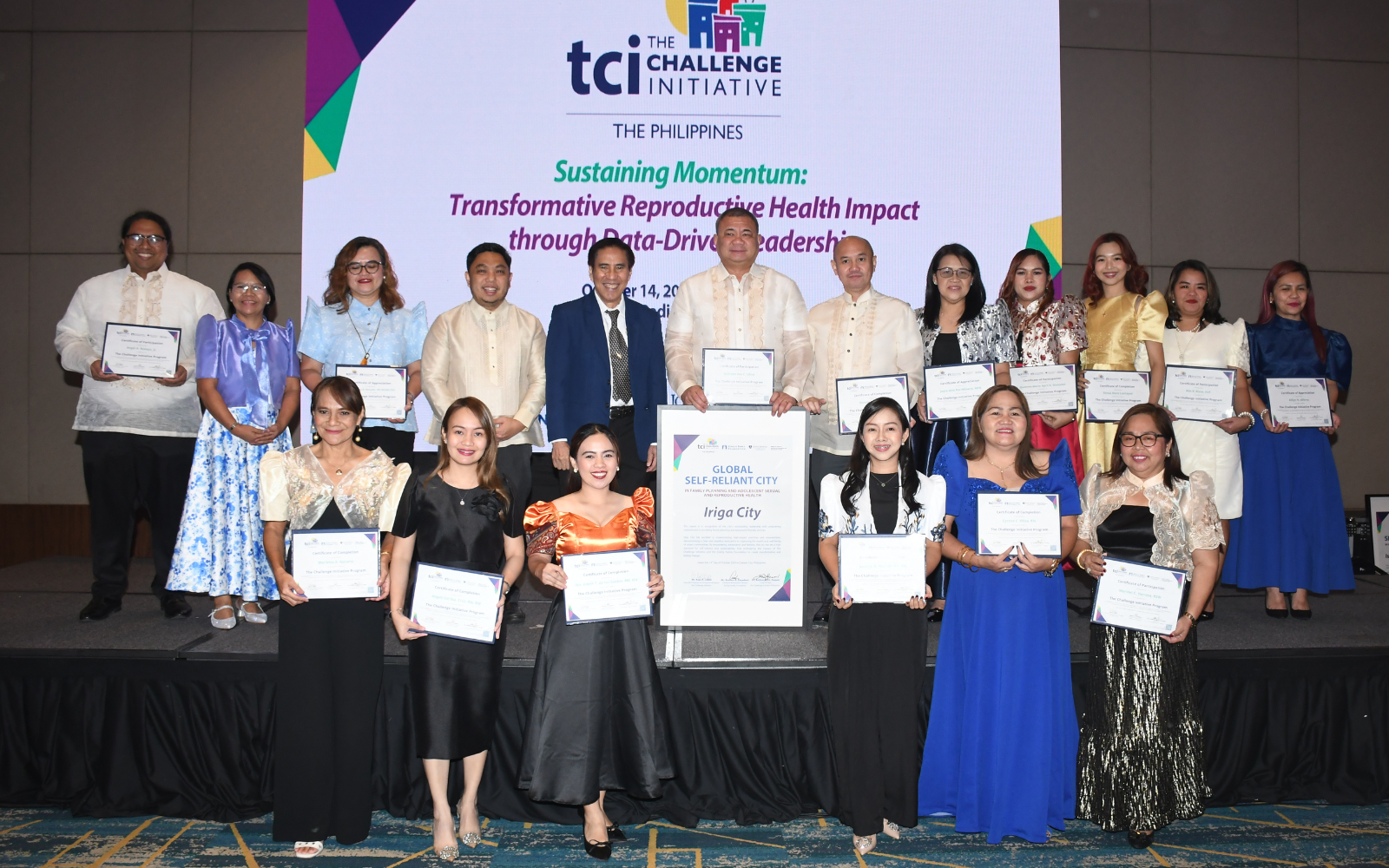
Iriga built its FP and AYSRH efforts on trust, cultural sensitivity, and sustainability. The city allocated local funds, including support for IP communities, to ensure programs continue even after external support ends. Partnerships with DOH, the Commission on Population and Development (CPD), ZFF, and TCI provided coaching and capacity-building, while local leaders and women’s organizations strengthened community ownership.
As Dr. Pereña shared, family planning is now part of Iriga’s long-term development plans. The city’s journey shows that even the most hard-to-reach families can make informed choices when programs are inclusive, respectful, and community-driven.
Tarlac Leaders Commit to Better Nutrition for All
“What I want to leave is a system that works even if we are not here. Even if there is a leadership change that does not prioritize nutrition, the institution is still effectively delivering the nutritional programs that are needed by the province.”
Tarlac Governor Christian Yap shared this vision during the Executive Session for Governors (ESG) held on December 11, 2025, at the Provincial Capitol in Tarlac City. The session formed part of the Zuellig Family Foundation (ZFF)’s Nutrition Leadership and Equity Acceleration Program (NutriLEAP).
Austere Panadero, ZFF President and Executive Director, opened the conversations by stressing that good nutrition is only possible when different sectors work together. Referring to ZFF’s 8 Critical Knobs for Nutrition Governance, he said, “The challenge is you don’t really handle one knob at a time, but to move all at the same time to find the mix of interventions that will move your strategy forward… to get all the towns and barangays to be part of the entire process.”
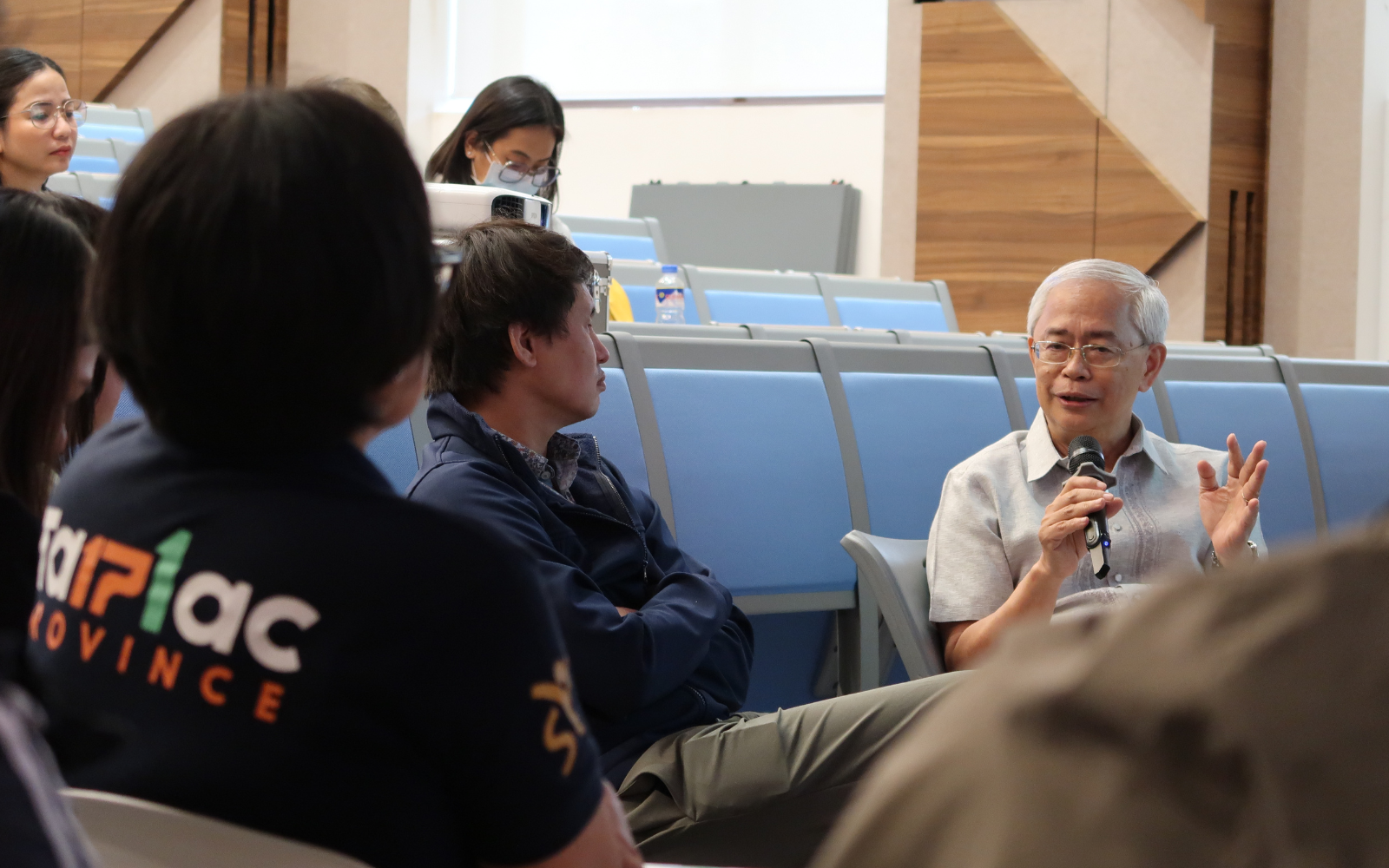
Prof. Hadji Balajadia of Ateneo de Davao University, who serves as a ZFF consultant, facilitated the session and guided Governor Yap and the participating heads of provincial offices to reflect on their own roles in improving nutrition. Using the Bridging Leadership Framework, they walked the participants through Ownership, Co-Ownership, and Co-Creation as steps toward shared solutions.
As the discussions deepened, Governor Yap explained how Tarlac is working toward a system grounded in evidence and sustainability. “We can spend so much, we can do so many feeding programs, but we don’t know if it is delivering results if there is no measure. Tarlac is okay in terms of the rankings nationally, but we are not content with what we have, and still want to improve.”
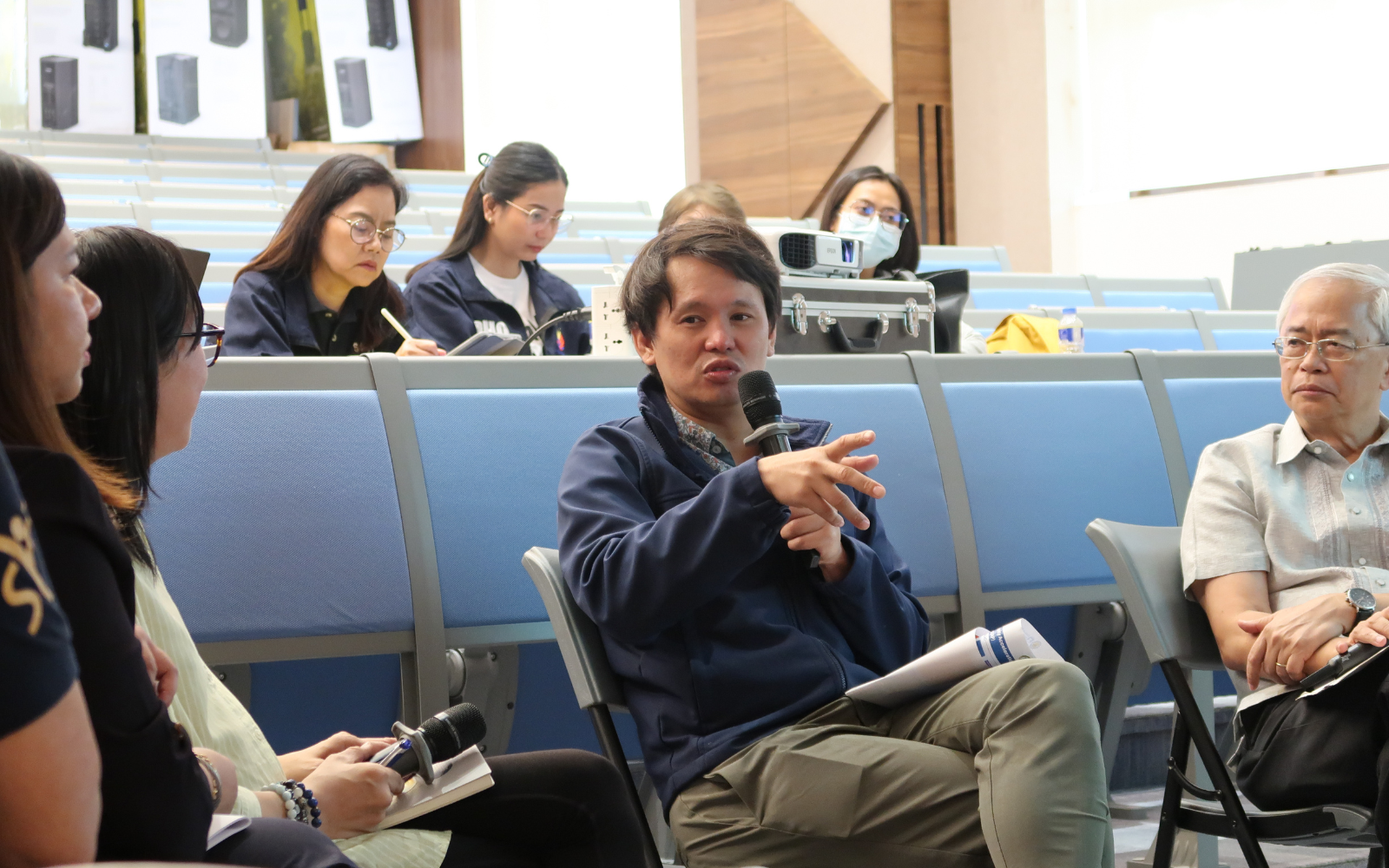
Together with the Governor, the heads of provincial offices identified key actions across major sectors:
- Health and Nutrition: Shift from reactive to preventive care; improve nutrition services for vulnerable groups; focus on early childhood nutrition and brain development; support caregivers with livelihood opportunities.
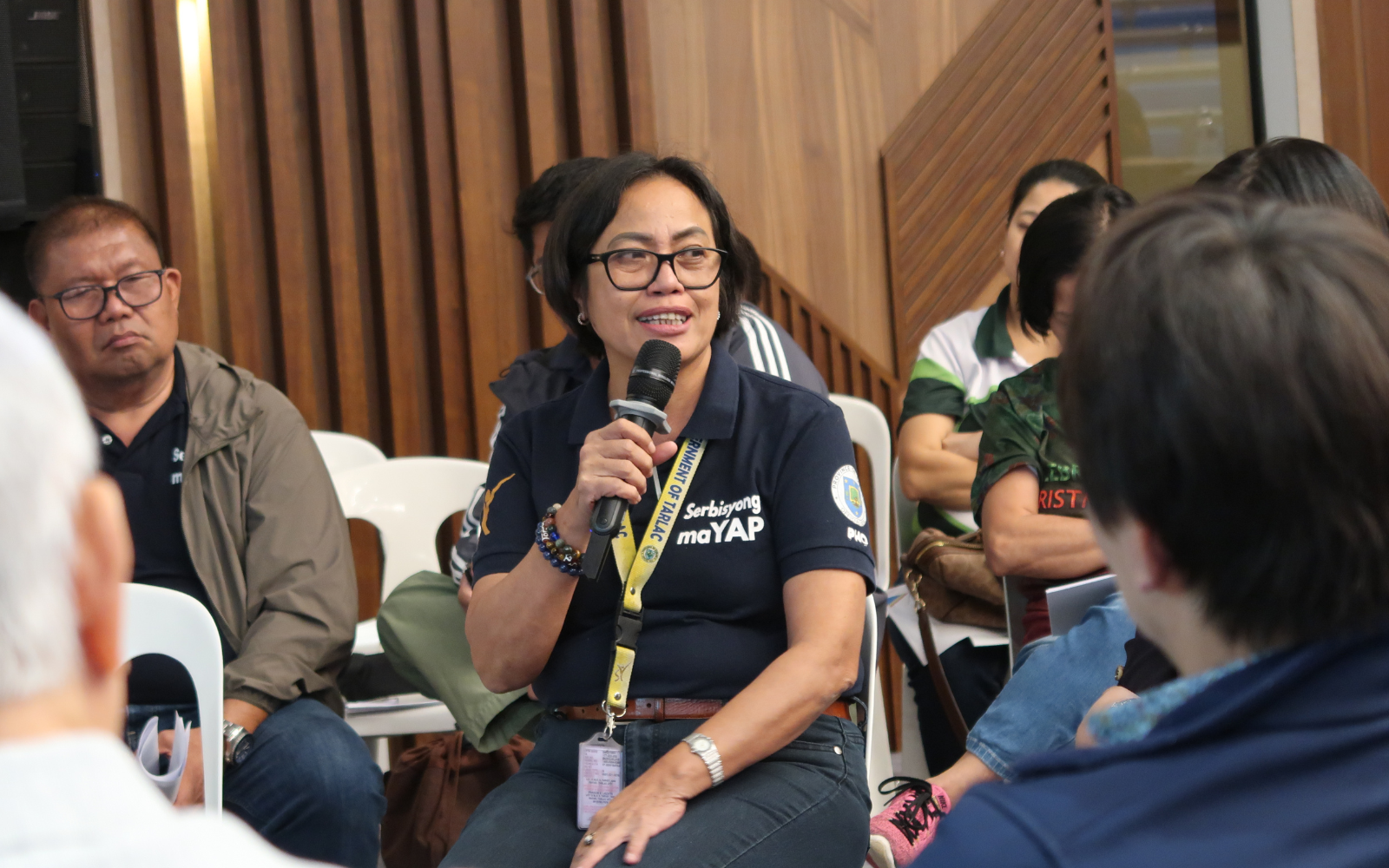
- Youth and Adolescents: Address teenage pregnancy; create youth-centered programs including peer counseling and community outreach; implement mental and reproductive health initiatives in schools.
- Education: Continue and expand school-based feeding programs; involve local government units (LGUs) to assist teachers in meal preparation; strengthen daycare programs for literacy, nutrition, and holistic child development.
- Agriculture and Food Security: Promote sustainable farming, reduce chemical inputs, and diversify crops; increase farmers’ income while ensuring nutritious food production; adopt long-term, environmentally responsible practices.
- Collaborative and Institutional: Build partnerships across health, social welfare, education, and agriculture sectors; use local and national data for planning; expand feeding, wellness, and youth programs to underserved areas.
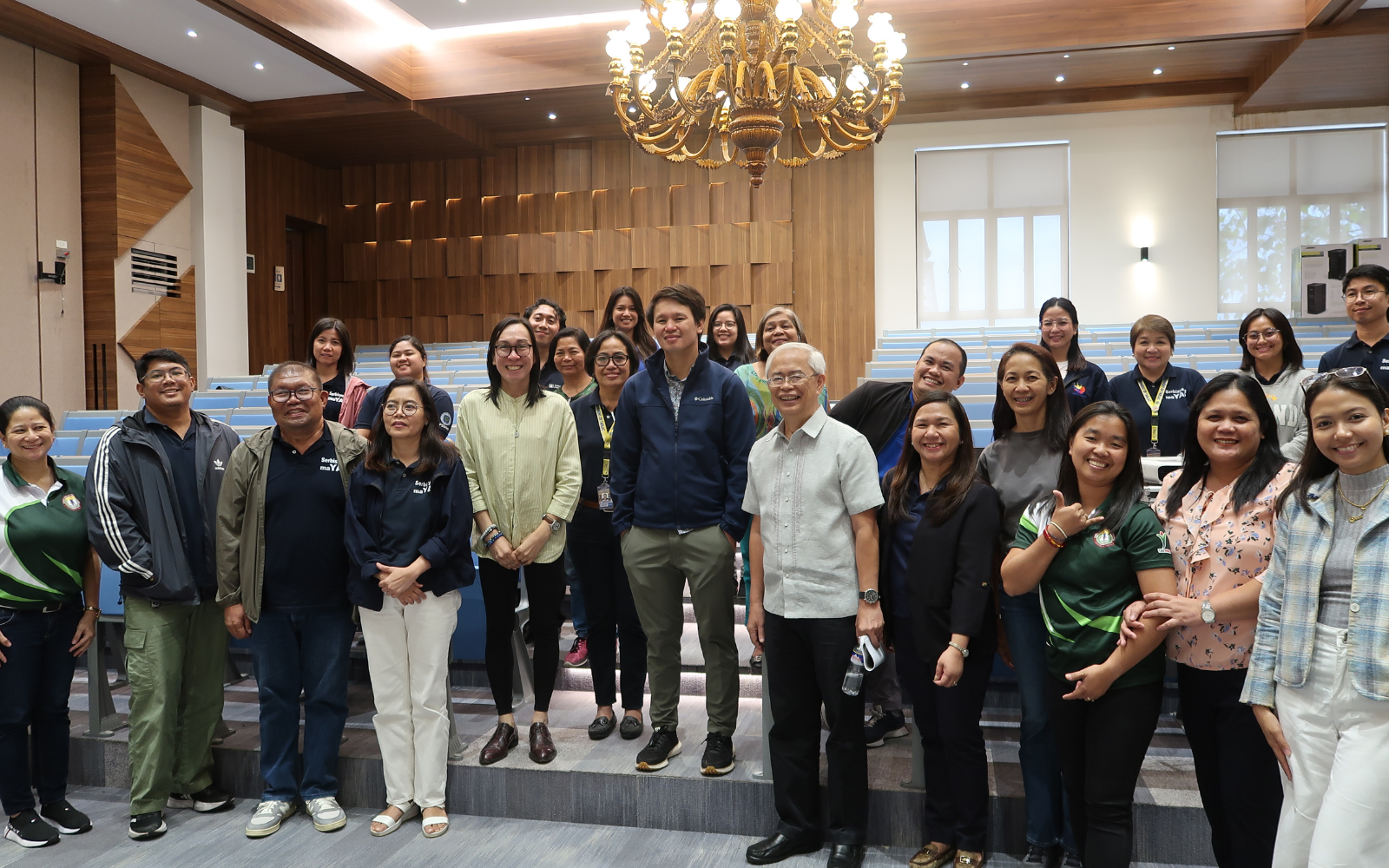
With shared goals and practical steps ahead, Tarlac’s leaders hope to bring their vision of a Pook Malusog to life—a province where every child, every family, in every community, can grow healthy and well.
Kibungan and Kapangan’s Grand March Toward a Shared UHC Vision
During Module 1 of the Bayang Malusog Leadership and Governance Program (BMLGP) held on November 27–28, 2025, representatives from the municipalities of Kibungan and Kapangan in Benguet—including Kapangan Mayor Harris Dizon—came together to reflect on their leadership journeys and shape a shared vision for Universal Health Care (UHC).

By the end of the module, both groups had crafted messages that captured their hopes for their people: “Maksil ya maketing ay i-Kibungan” (Healthy and resilient people of Kibungan) and “Misyon man-aabat para sin salun-at for a healthier Kapangan” (Our mission for health—together for a healthier Kapangan).
Reflections Rooted in Community
The reflections from the group grew naturally from the Day 1 sessions, where participants explored their values, motivations, and lived experiences through the three-step Bridging Leadership framework of Ownership, Co-Ownership, and Co-Creation.
As part of the Ownership process, the group examined their “why” as leaders—what shaped them, what drives them, and how their stories connect to the health of their communities.
This grounding in personal purpose set the tone for the collective work that followed.

Bryan Alacdis, Kibinungan Municipal Accountant, explained that in their town, support for each other is deeply woven into their way of life. “Our main [quality in Kibungan] is we support each other. Awan ti milak-laksid, awan ti maibat-bati. (No one is left out, no one is left behind.)”
Dizon also connected their collective effort to a familiar cultural symbol in Benguet, the grand march, a traditional dance that brings people together across social, political, and religious lines.
In the same way, leaders from both municipalities recognized that UHC is a shared movement—everyone stepping in rhythm, carrying their role, and supporting one another.

Co-Ownership, Co-Creation, and Action Planning
On the second day, the groups moved from personal awareness to shared responsibility. Guided by the Zuellig Family Foundation’s Local Health System and BMLGP team, they practiced trust-building, stakeholder mapping, and open dialogue—activities that helped them understand the bigger system they are part of.
With this stronger sense of co-ownership, the teams drafted action plans aligned with the Benguet UHC Roadmap. These plans focused on strengthening primary care, improving coordination between offices, supporting health financing, and making sure resources are used wisely and transparently.

The two-day module ended with a meaningful moment. Participants recited the Pledge of Commitment as Bridging Leaders, affirming their promise to lead with compassion, integrity, and shared responsibility. Afterward, they joined in the grand march—a symbol of unity, community spirit, and moving forward together.
Like the grand march, the UHC journey in Benguet is a collective movement. With visions strengthened by both personal purpose and shared commitment, Kibungan and Kapangan now step forward in rhythm, carrying with them a shared hope for a healthier and stronger Benguet.
PRESENTATION: Capacitating Local Government Units for Improved Health Outcomes: A Tri-Sectoral Collaboration Model for Health Leadership Development in the Philippines
This presentation outlines a tri-sectoral collaboration model in the Philippines designed to strengthen local health leadership and improve health outcomes. It highlights how the Zuellig Family Foundation (ZFF), in partnership with academic institutions and the Department of Health, supports Local Chief Executives and Municipal Health Officers through leadership development, experiential learning, and evidence-based interventions.
ZFF shared these insights at the 18th Association of Pacific Rim Universities Global Health Conference, held at Universiti Malaya in Kuala Lumpur, Malaysia, from October 28–31, 2025, showcasing practical strategies for capacitating local health leaders through tri-sectoral partnerships.
POSTER: Building Better Youth Programs Through Evidence: The YPAR-DMS Innovation
The Youth Participation Action Record Data Management System (YPAR-DMS) is an innovative tool developed to strengthen youth programs in the Philippines through evidence-based planning. Designed in collaboration with the Province of Sarangani and supported by UNFPA, the YPAR-DMS allows youth leaders to collect and analyze data on participation across nine key areas, including health, education, economic empowerment, governance, and social inclusion. Piloted in seven local government units, the system has already helped identify emerging trends, gaps, and priority concerns among youth, enabling timely interventions such as community-based mental health support and youth counseling programs.
The Zuellig Family Foundation shared this innovation at the 18th Association of Pacific Rim Universities Global Health Conference, held at Universiti Malaya, Kuala Lumpur, Malaysia, on October 28–31, 2025.
Poster_YPAR-DMSPRESENTATION: Early Lessons from Financial Integration in Batangas and Quezon
Advancing Universal Health Coverage in the Philippines
This presentation summarizes early lessons from financial integration in Batangas and Quezon, Philippines, focusing on advancing Universal Health Coverage (UHC) through the establishment of a Special Health Fund (SHF). It highlights the experiences of local government units, national agencies, and partner organizations in operationalizing the SHF, including key processes, enabling factors, challenges, and practical recommendations for sustainable and coordinated health financing. By sharing these insights, the presentation aims to inform strategies that support equitable access to quality health care across provinces.
The Zuellig Family Foundation (ZFF) shared these early lessons at the 18th Association of Pacific Rim Universities (APRU) Global Health Conference, held at Universiti Malaya, Kuala Lumpur, Malaysia, on October 28–31, 2025, contributing to regional dialogue on strengthening health systems and advancing UHC.
Strengthening Health Leadership for UHC through Strategic Planning: Lessons from Aklan and Baguio
Health leaders from Aklan and Baguio City joined a two-day strategic planning workshop on November 13–24, 2025, under Zuellig Family Foundation’s Bayang Malusog Community of Practice.
The session introduced an outcomes-based and data-driven approach to improving health systems, with hypertension prevention and control as the main example. This method supports the goals of Universal Health Care (UHC) by showing how program design, resource allocation, and stakeholder engagement can directly contribute to better health outcomes.
Related articles:
- Bayang Malusog Community of Practice Holds Learning Visit in Laguna
- Bayang Malusog Community of Practice: Advancing Health Care Provider Networks for Universal Health Care
- Insights from the 2024 Bayang Malusog Community of Practice Sessions
The workshop came at an important time. With the ongoing strategic pause in the Health Care Provider Network implementation for demonstration sites, local government units (LGUs) now have space to revisit their plans and budgets. This pause allows them to shift their focus from system integration to the results they want to achieve.

Dr. Carlo Panelo, healthcare economics expert and Professor at the University of the Philippines Manila College of Medicine, reminded participants that, even with the pause, LGUs must stay proactive. He encouraged them to think about health financing with outcomes in mind and to use the hypertension control program as a way to bring partners together and drive improvements in service delivery.
Participants engaged in hands-on exercises to review program performance, set achievable targets, define essential service packages, and estimate the resources needed. They also identified possible financing sources, drafted financial plans, and outlined governance and monitoring arrangements.
Both Aklan and Baguio recognized the importance of having complete, reliable data and saw how better data management can support structured planning across different health programs. They also acknowledged common challenges such as limited capacity, incomplete information, and resistance to new planning methods. Still, both areas committed to refining their plans and becoming more proactive so that their health indicators clearly reflect the progress they aim to achieve.
Hypertension served as the workshop’s main health indicator because it remains a major cause of illness and death in the Philippines, especially due to heart disease and stroke. Chronic diseases like hypertension require strong systems that can support long-term care, demand more resources, and affect all levels of service and stages of life. For the participants, hypertension became a practical way to understand how strategic planning can push systems forward.
Aklan appreciated how the process can be applied to other health programs, especially as new program managers come onboard. Their financial analysis even showed a surplus that could support hypertension interventions. “We were reminded how to do planning based on factual data and in a systematic way. Despite workload and the tendency to ‘copy-paste,’ being here allowed us to focus on proper planning,” said Dr. Daystar Sedillo, Medical Officer IV of Aklan.

Baguio valued the clarity and structure of the approach and noted the need to strengthen data gathering and management. “We need to fine-tune the planning process to target root causes and outcomes,” shared Rommel de Guzman, Health Education and Promotions Officer II of Baguio. The city also saw how the Local Health Systems Maturity Level connects with actual implementation and outputs.
For both LGUs, the pause is not a setback but a chance to prepare. Once funds start flowing again, they want to be ready—capable of managing resources well and confident that their plans will lead to healthier communities.